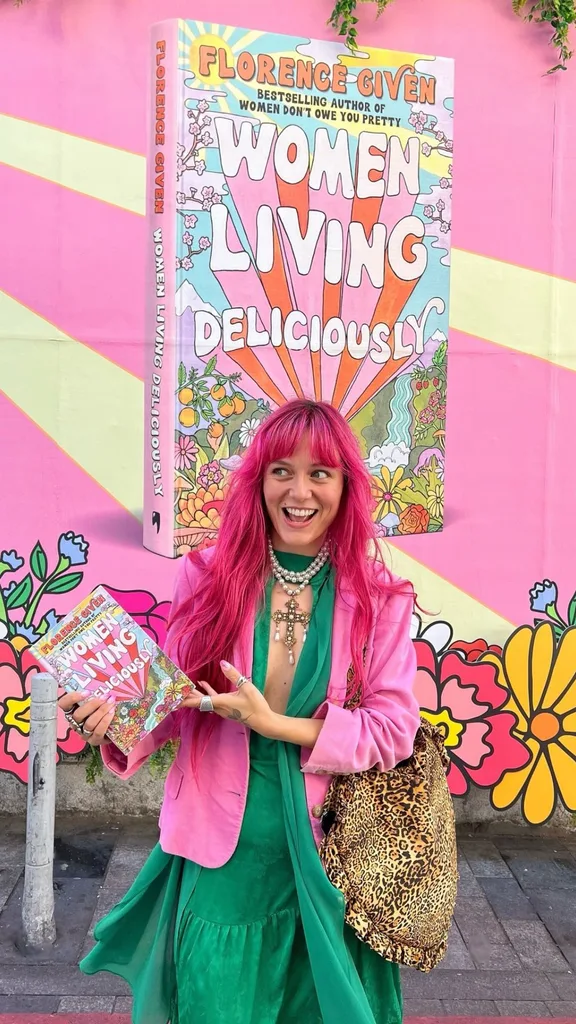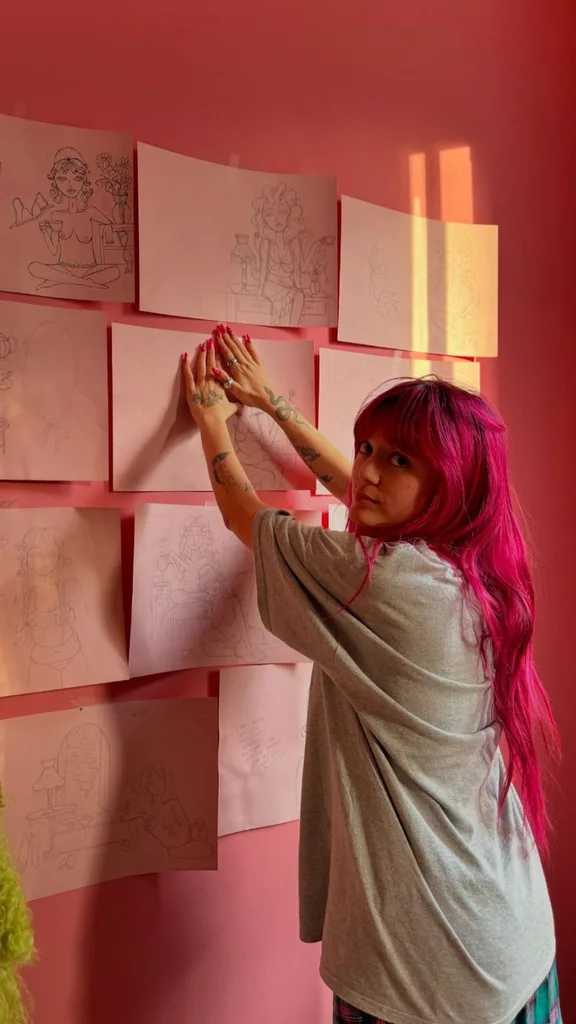In her new book, British illustrator and best-selling author Florence Given emphasises the importance of play as an antidote to burnout. Below, the author shares an extract from her newly-released book, Women Living Deliciously.
Life is full of responsibilities. School. Homework. Bills. Mortgages. Jobs. Roles. Profit. Loss. Deadlines. Organising. Meetings. Chores. Calendars.
These are all important and, for the most part, completely unavoidable. But any time I have lost myself in these, leaning too much on the striving part of myself, I lost connection and joy. [And lost] that child inside me desperate to play and point out the funny, silly, beautiful things in life. She feels dismissed.
Life is about balancing these parts. It is when we are so heavily steered towards one or the other – too much play or too much hustle – that we suffer.
We need to look no further than the devastating effect that hyper-productivity is having on our planet to see just how destructive this imbalance can be to our own bodies. The entire planet has been off-balance for too long.
Under capitalist patriarchy, the intuitive, creative and playful energy of human beings has been suppressed and shamed in favour of productivity, mass-production and goal-oriented success at any cost – and just look at the state of Mother Earth.
Look at what we’re doing to her for our own endless craving to produce more, more, more! She is stressed, burnt out, she is being mined and fracked, the oceans are polluted and species are becoming endangered. She needs a break, she needs rest, she needs time to heal.

When we are strictly goal-oriented and focusing on achieving an outcome, we are less likely to respect the journey of how we get there, and focus more on getting there as quickly as possible. We are less likely to make informed, sustainable, intentional choices and more likely to cut corners, burn ourselves out, harm ourselves or others and try to achieve something by any means necessary. When we discard the importance of joy, of play and presence, we normalise discontent. We forget that the journey is the most fulfilling part.
We are our own little “earth”. We too need a balance in both of these polarising energies, of playing and working, of working and being.
“Whenever I am overruled by my perfectionist self – when I give myself no rest, no pause, no play, no joy, no fun, and fetishise my productivity – I receive a little nudge from my body, like a gentle whisper to slow down”
Florence Given
Whenever I am overruled by my perfectionist self – when I give myself no rest, no pause, no play, no joy, no fun, and fetishise my productivity – I receive a little nudge from my body, like a gentle whisper to slow down. This might show up in sleepiness. Or I get an ache in my body. Or I’m reactive and snap at someone. It took me so long to realise that this is bodily wisdom, not an obstacle to overcome.
It is a calling from within to rest, adequately. Not by planting a screen in front of my face, but by sinking into “boredom” and seeing what visits me.

Unless you make an intentional effort to enjoy your life, that enjoyment will be sidelined, forgotten, until it’s eventually deemed “unnecessary” for a good life. Being silly, being playful, laughing, crying in awe, going for walks, reading books – doing anything that the perfectionist voice in me believes is a “waste of time” – has healed me. It has resuscitated the part of me that felt dead inside, the part I thought had lost its spark.
During the pandemic, Mother Earth slowly started to take back what was hers. Animals roamed highways, birds returned to homes they hadn’t visited for years, and marine life felt safe to return to normally tourist-riddled beaches, without our pollution and chaos. Nature literally healed when we slowed down. I imagine the same for ourselves, the sense of playfulness and freedom we gain when we are no longer driven by the fear of “being behind” in the rat race.
Slowly, we reveal the parts of ourselves long hidden, parts that now feel safe to explore and venture into the world and our lives. Turning this shit around starts with us. It starts with being silly.
This is an edited extract from Women Living Deliciously, by Florence Given (Hachette, $39.99). Out now.
This article originally appeared on Marie Claire Australia and is republished here with permission.







